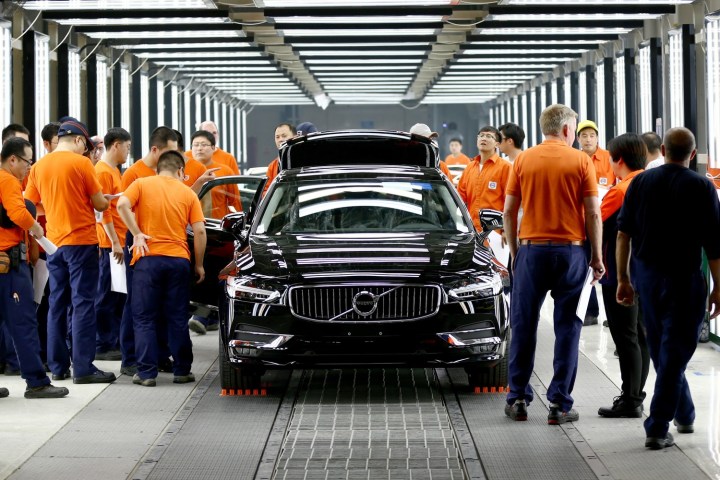
The Swedish automaker plans to shift production of the S90 sedan from Europe to a plant in Daqing, Heilongjiang province, in northern China. The announcement came as Volvo unveiled a new version of the S90 designed specifically for the Chinese market, as well as a high-end S90 Excellence model. Both will appear at the 2016 Guangzhou Motor Show later this month.
Volvo will also start building its medium-sized “60-series” car at a plant in Chengdu, Szechuan province, in western China. The “60” lineup currently includes the S60 sedan, V60 wagon, and XC60 crossover. All three are due for a redesign, shifting to the same Scalable Product Architecture (SPA) platform as the S90 and other larger Volvo models.
Read more: Volvo’s V90 Cross Country is the cure for the common crossover
Finally, a third plant currently under construction in Luqiao, just over 200 miles south of Shanghai, will build a new line of “40-series” compact cars, based on the Compact Modular Architecture (CMA) platform previewed by Volvo earlier this year. The Luqiao plant will also build CMA-based cars for Lynk & Co, the new car brand launched by Volvo parent Geely last month.
Not all Volvos will be built in China, though. The automaker plans to maintain its current plants in Gothenburg, Sweden, and Ghent, Belgium. The Swedish plant will build “90” and “60” models, while the Belgian plant will be devoted exclusively to “40” models. Volvo is also building a new plant in South Carolina that produce cars both for the U.S. market and for export. Volvo said the plant will build “SPA-based vehicles,” meaning it could manufacture “90” or “60” models.
Volvo isn’t the only automaker planning to export cars from China. General Motors is exporting the Buick Envision SUV and the Cadillac CT6 Plug-In Hybrid. Both models were designed primarily for the Chinese market, but will be sold in the U.S.
Editors' Recommendations
- Google is bringing Chrome browser to cars, even more EV features to Maps
- Volvo EX90 price, range, release date, specs, and more
- China will study how to build a massive spacecraft over a half-mile long
- Volvo unveils the electric 2022 C40 Recharge with Android-powered in-car tech
- China’s Tianwen-1 spacecraft snaps image of Mars from over 1 million miles away


